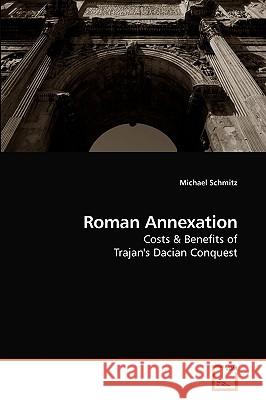Roman Annexation » książka
Roman Annexation
ISBN-13: 9783639225440 / Angielski / Miękka / 2010 / 272 str.
The reasons for Roman annexation have too often been explained in simplistic monocausal terms, such as a desire for glory or wealth or as a defensive measure against a warlike neighbour. This book seeks to redress this simplistic perception of causality for Roman annexation and argues that the Romans sought advantage from their military endeavours and possessed a complex understanding of the factors that could contribute to advantage or disadvantage. This work provides a comprehensive methodology, which is based on the modern cost-benefit analysis tool, for the assessment of Roman annexation in order to determine whether, and under what circumstances, annexation was advantageous to Rome. The methodology is then used to assess Trajan's annexation of Dacia in AD 106-107. This book is aimed at academics, students and anyone with an interest in the causes for imperialist expansion in the ancient or modern world.
The reasons for Roman annexation have too often been explained in simplistic monocausal terms, such as a desire for glory or wealth or as a defensive measure against a warlike neighbour. This book seeks to redress this simplistic perception of causality for Roman annexation and argues that the Romans sought advantage from their military endeavours and possessed a complex understanding of the factors that could contribute to advantage or disadvantage. This work provides a comprehensive methodology, which is based on the modern cost-benefit analysis tool, for the assessment of Roman annexation in order to determine whether, and under what circumstances, annexation was advantageous to Rome. The methodology is then used to assess Trajans annexation of Dacia in AD 106-107. This book is aimed at academics, students and anyone with an interest in the causes for imperialist expansion in the ancient or modern world.











